Iraq is facing serious unrest that is likely to force limited reforms in the political system but not wholesale change. The current Iraqi power structure, with Iranian support, will use a mix of repression, cooptation, and limited concessions to weaken the opposition. The opposition’s lack of clear leadership makes such tactics more likely to succeed. The U.S. position in Iraq is weak, and Washington — even if it so desired — will probably have little impact on the events there.
A serious challenge
The latest protests in Iraq are among the most serious crises for the Iraqi political system since the United States helped establish it after the 2003 overthrow of Saddam Hussein. The protests, led by an emerging generation of Iraqis, highlight the failure of the Iraqi state-building process in the last 15 years.
The unrest involves a wide range of social groups and numerous parts of Iraq, suggesting the depth of popular anger at the government, resentment towards the heavy Iranian role, and dissatisfaction with difficult living conditions in Iraq. Iraq is one of the world’s most corrupt countries, and protesters unsurprisingly rail against this. Many other problems, such as the government’s decision to transfer and snub Lieutenant General Abdul Wahab al-Saadi, the popular counterterrorism service commander who led the fight against the Islamic State in Mosul, are often seen in that light, with protesters believing that the general was being punished for refusing to go along with corruption.
A high body count is adding to popular rage. Specifics are elusive, but Iraqi security forces and paramilitary groups, operating with support and direction from Iran, have killed at least 400 Iraqis and injured several thousand more. Important Iraqi figures, such as the popular Grand Ayatollah Ali al-Sistani, have called for new leadership and a rejection of foreign influence. Many other leaders are publicly embracing at least some of the protesters’ agenda while at the same time worrying about their possible loss of power and looking for opportunities to ride this wave.
Regime responses
The Iraqi political system is dominated by various warlords and political power-brokers who form shifting and uneasy alliances that enable them to capture resources of the Iraqi state and channel them to their followers to preserve their influence. These elites use the courts, media, and other forms of state power to strengthen their grip on power. Such an elite-driven pact between rival factions, which is one part a power-sharing arrangement and one part a distribution of state resources among rival ethnic and religious factions, has helped Iraq avoid civil war. The protests call this whole system into question, and the Iraqi regime’s response is likely to mix repression, cooptation, and limited (and mostly cosmetic) reform.
Iraqi power brokers, including many with close ties to Iran, have an array of repressive options at their disposal. Although some security forces are barely loyal — if at all — to the government, and others would claim professionalism prevents them from attacking demonstrators, at least some members or units among the sprawling security services are available to attack demonstrators. As the protests have continued, repression has increased. Snipers killed protesters. Iraqi security forces attacked and killed unarmed demonstrators in Baghdad, and a drone struck at the home of Muqtada al-Sadr, the prominent Shiite cleric who has embraced the demonstrations. Hashd Shaabi, the paramilitary force whose many members include Shiite groups tied to Iran, is attacking protesters in Baghdad. One news source described a, “pattern of mass arrests, intimidation and torture” against demonstrators by Iranian-backed groups.
Regime leaders, with Iranian support, are also likely to try to identify and coopt key opposition figures to gain or secure their loyalty. This will primarily involve corruption or offers of positions of responsibility, and it will be paired, at least implicitly, with repression.
To balance the cooptation and repression, political elites are likely to offer concessions to the protestors and others to try to portray themselves as responsive while avoiding true changes. The proffered resignation of Prime Minister Adil Abdul-Mahdi is one example of this, with leaders willing to sacrifice one of their own but less willing to change the system fundamentally. Leaders may also make some changes to electoral laws with the ostensible goal of reducing factionalism, hold new elections, demonstrably punish a few individuals for corruption, and otherwise meet some of the protesters’ demands. Over time, should enthusiasm for the protests decline, Iraqi leaders are likely to delay and water down any reforms. In addition, many will be ignored in practice, with elite “grand bargains” and corruption being used to circumvent popular will.
Tehran is likely to play an important role to shore up the Iraqi power structure, which it currently dominates. Militias loyal to it (and at times coordinated by the Islamic Revolutionary Guard Corps or other Iranian personnel) are playing leading roles in repression. Money from Tehran will also be instrumental in helping buy off many leaders. Finally, Tehran will push for certain leaders to be removed or changes to be made to preserve the system as a whole. Overall, Tehran is likely to recognize the need for tactical retreats and cosmetic changes in order to maintain its primacy in Iraq.
A weak opposition
The opposition has strong levels of popular support, but it is poorly organized, divided, and leaderless. The protests are about everything. This has helped lead to widespread popular involvement, but it also makes it easier to placate discrete elements (e.g. students) with narrow concessions. Sectarian divides as well as regional differences will exacerbate the opposition’s weakness. As such, protesters will find it hard to present a united front and the movement will be highly vulnerable to efforts to undermine it.
Implications for U.S. interests
If the current political leaders can successfully repress and weaken the protest movement, Iraq will limp along as a weak state heavily dominated by Iran, albeit with a few new faces at the top. Another possibility is an Iraq that is even more chaotic and violent, which will attract even more meddling from opportunistic neighbors in addition to Iran as well as increase Kurdish support for greater autonomy or even independence. Either way, Iraqi leaders will remain focused on securing their bases of power and on appeasing popular sentiment, making them reluctant to devote resources to improving governance and services in Islamic State-devastated areas.
U.S. influence over Iraqi politics is weak. Ironically (and with the Islamic State hit hard), this poor position can be an opportunity for the United States to support more political change and openness and otherwise side more with the new generation. In contrast to previous years, America is less vested in the current political system. The United States should call out heavy uses of repression and highlight Iranian manipulation whenever possible. Such efforts are not likely to change the situation significantly in Iraq, but they will improve popular perceptions of the United States.
This piece was originally commissioned and funded by the U.S. government. The views expressed are the author’s alone and do not necessarily reflect the opinions or policies of the government.
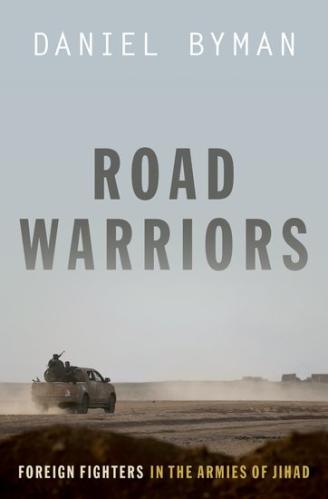
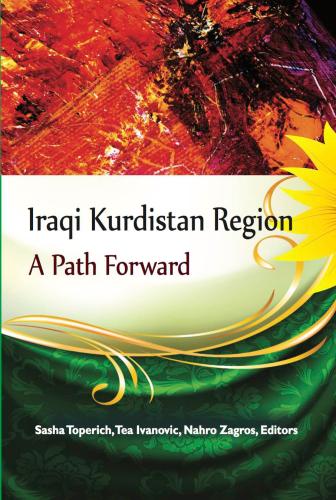
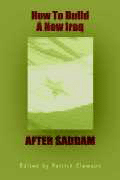
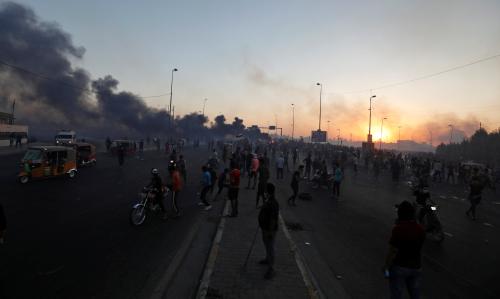
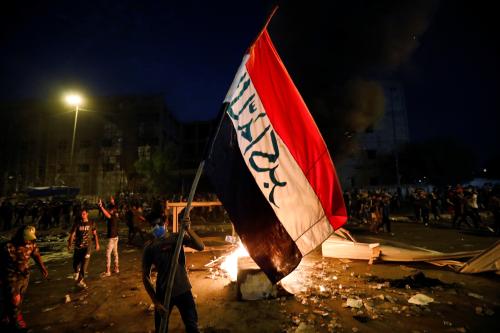


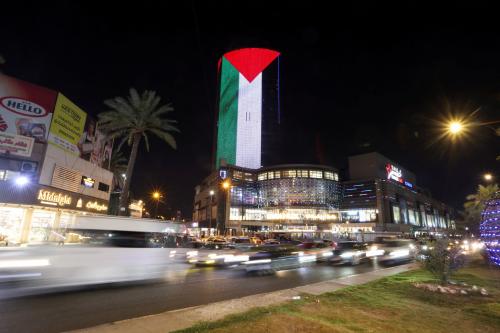
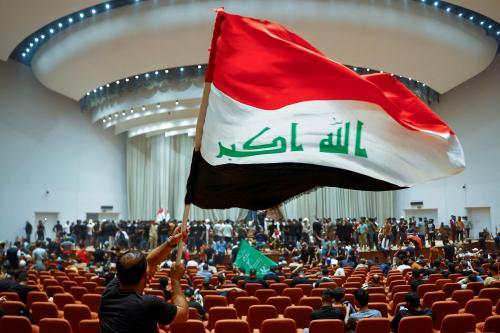
Commentary
Is change likely in Iraq?
December 20, 2019